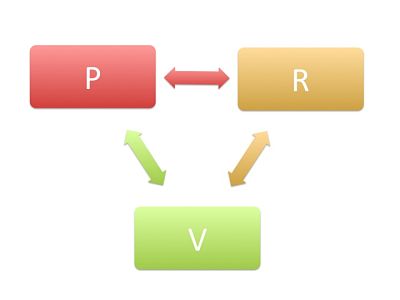 I’m not sure why it’s taken me so long to write about the Drama Triangle as it’s probably the concept that has had more “aha” factor than any of the others with my clients. People tend to “get it” and, as if by magic, the behaviour patterns that they have been engaged in with others suddenly become apparent. The concept also invites the client to think about the messages they learnt about themselves and others as they were growing up. This new awareness gives an ability to change and pull themselves out of unproductive ways of being.
I’m not sure why it’s taken me so long to write about the Drama Triangle as it’s probably the concept that has had more “aha” factor than any of the others with my clients. People tend to “get it” and, as if by magic, the behaviour patterns that they have been engaged in with others suddenly become apparent. The concept also invites the client to think about the messages they learnt about themselves and others as they were growing up. This new awareness gives an ability to change and pull themselves out of unproductive ways of being.
What is the Drama Triangle?
The Drama Triangle was created by Steven Karpman as a different way of looking at Berne’s Game theory. Karpman suggested that there are three roles that people can take when they play games:
Persecutor – Persecutors take the “I’m OK, you’re not OK” position. They bully, snipe, bitch and intimidate others.
Rescuer – The Rescuer also takes the “I’m OK, you’re not OK” position but the feel is very different. Rescuers “take care” of others whether the other person wants looking after or not. They presume that others do not have the ability to do things for themselves.
Victim – Victims take the “I’m not OK, You’re OK” position. They look for others to either “look after” them or pick on them.
So, which one are you? If you’re like the rest of us then you’re probably all of them! You are, however, likely to favour one of these Drama Triangle positions over the others.
All three of these roles are inauthentic – that is, they are based on the past ideas and beliefs that the individual has formed about themselves and others throughout childhood. The positions are likely to confirm script beliefs and are responding to past events rather than the here and now.
Let’s just take a minute to think about that for a while. If I’m treating someone like a Victim and I am Rescuing them, then that has probably more to do with my beliefs formed in my childhood than the needs of the person I am Rescuing. The here and now reality of the situation is ignored (discounted) and I just carry out those actions that have been programmed into me as a child. The great thing about that program is that we wrote it and we can change it. I think it is this program that gets revealed to clients I explain the Drama triangle to. On seeing the program they can decide whether it is useful anymore and how it needs to be altered. The process of psychotherapy then supports and facilitates the changes the client wants to make.
The diagram used to show the relationship between these positions is drawn like this:
 The important thing to see here is those arrows going in both directions. When playing games an individual tends to move around the triangle taking all of the roles at different times. We dance around the triangle with our opposite number taking on all of the roles.
The important thing to see here is those arrows going in both directions. When playing games an individual tends to move around the triangle taking all of the roles at different times. We dance around the triangle with our opposite number taking on all of the roles.
Here’s an example of a conversation between two people that demonstrates the triangle nicely.
Jamie: Why are you late again? You’re always late for everything and I’m sick of it! (persecutor)
Lesley: I’m really sorry, I forgot to set my alarm. Please don’t be mad at me. (victim)
Jamie: Well you’re stupid and inconsiderate. I’ve no idea why I put up with you! (persecutor)
Lesley: It’s not as if you are perfect. Stop shouting at me now otherwise you will regret it! (persecutor)
Jamie: OK, OK. Calm down. I didn’t mean to upset you. (victim)
Lesley: Well you never help me with my lateness so what do you expect? (Persecutor)
Jamie: OK, so from now on I will set your alarm for you and make sure you get out of the house on time. (Rescuer)
Note how the positions change, and when one player moves position that invites movement of the other player.
When is a rescue a Rescue?
The convention is to capitalize the R when discussing the drama triangle type of Rescuing, Persecuting or Victim to distinguish it from the non-drama type. The difference is that when a game-playing Rescue takes place then the Rescuer is usually doing something that they do not really want to do but they think that they “ought” to. A Rescue also involves a discount of self or other (as all the positions in the triangle do). In the example above, Jamie is discounting the ability of Lesley, who is an adult, to set an alarm clock. Also, Jamie really does not want the added stress of making sure that Lesley is not late any more but feels obliged to “help” Lesley with this. The ideas that Jamie should do this will have been formed in childhood and are part of her script beliefs.
Why do we play on the Drama Triangle?
We dance round this triangle for the same reason that we play games; we want to get our needs met but we are often too scared to ask for what we want directly. Asking for what we want, being intimate with others, feels dangerous and there is the highest risk that we may be rejected so we take one step down and play games instead to attempt to manipulate others into giving us what we want without being explicit.
The cost of doing this can be high. Each position has its own payoff and these often reinforce the beliefs about self. For example, in the script above, Jamie may once again see that her needs are not important and that she has to look after others to be OK. This leaves her feeling angry and uncared for.
How do we step off the Drama Triangle?
The solution is simple. Step off the triangle by being intimate with those you talk to. This can be carried out simply by using Steiner’s “action-feeling” statements.
The first transaction from Jamie may then have looked like this:
Jamie “When you turn up late I feel angry and annoyed. In future I would like you to turn up on time or ring me to let me know you’ve been held up”.
This statement invites Lesley to think about her behaviour and how it’s had an impact on Jamie. It invites Lesley to stay in Adult ego state and be empathic to Jamie’s needs.
What’s the next step?
I think the next step is to become aware of the ways in which you are dancing on the drama triangle. Notice which positions you take more often. Do you take different positions with different people? How does your drama triangle position connect with your experiences in childhood? When you have gathered this information you can decide to do things differently. Whenever we do things differently there is likely to be feelings that come up for us so seek out a close friend or family member you can talk this through with or work with a therapist to help you make the changes you want.
What do you think about the drama triangle? Do you have great strategies to get yourself off the triangle into closer connection? Please comment on your Drama Triangle experiences using the space below.
